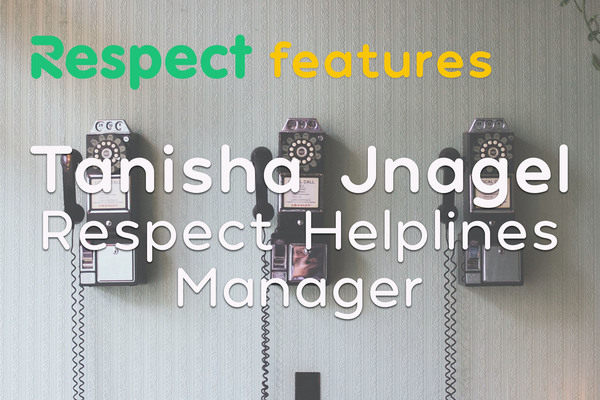Callers to the Men’s Advice Line are often surprised to learn other men share their experiences of abuse. According to Helplines Manager, Tanisha Jnagel, most callers to the Men’s Advice Line are aware of the services available to women experiencing abuse but have no idea that services exist to support them. Tanisha says most don’t even know there are refuges for male victims.
Many men who experience domestic abuse struggle to see themselves as victims, because of society’s ideas of abuse and who it happens to. Men are rarely included in campaigns, media stories or politicians’ speeches about domestic abuse. As a result, many male victims don’t realise what they’re experiencing is abuse and don’t consider reaching out for help.
“I want men experiencing domestic abuse to know help and support is available and we are ready to listen and provide support,” Tanisha said.
Harmful stereotypes of masculinity further shame men and boys into hiding their emotions, which creates additional barriers by encouraging male victims to present as tough and macho. Male victims may face attacks on their male identities and sense of masculinity as a form of abuse from their partners. This can come in the form of degrading comments, name-calling or being told they’re not a “real man.”
Differences in physical strength, stature and income level are also used to justify abuse against men. Tanisha wants male victims to know that just because your partner may be 5’3” and you may be 6’2”, that does not mean the abuse does not affect you, nor does it mean that their behaviour is acceptable.
“It’s really important that we come away from focusing only on body sizes and the physical impact of violence and recognise that any abuse taking place is harmful,” Tanisha said. “It’s not just about whether or not you have injuries, it’s the fact that abuse is taking place.”
Tanisha and the Men’s Advice Line’s Advisors aim to support and challenge callers in a constructive way. By asking probing questions such as, “Where did you learn that you should be able to tolerate your partner’s abuse?”, Tanisha says they can look deeper and hopefully disrupt some of the negative thinking about how men should be.
Tanisha wants to remind male victims that Domestic Violence, Crime and Victims Act covers both men and women, and there are safeguarding practices in place to protect both. However, she also recognises that some callers from black and ethnic minoritised communities may face additional barriers in accessing or receiving support. Many black male callers have expressed feelings of distrust towards police and other authority figures, because of histories of racialised and discriminatory practices.
The Men’s Advice Line is confidential, and the Advisors are there to listen and support male victims of domestic violence to reach their own decisions. If you’re a man experiencing domestic abuse or you’re supporting someone that is, contact the Men’s Advice Line on 0808 8010327 or visit www.mensadviceline.org.uk and #TalkitOver.





